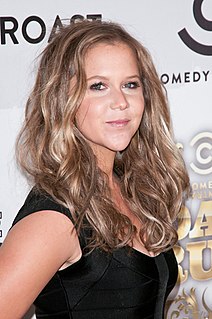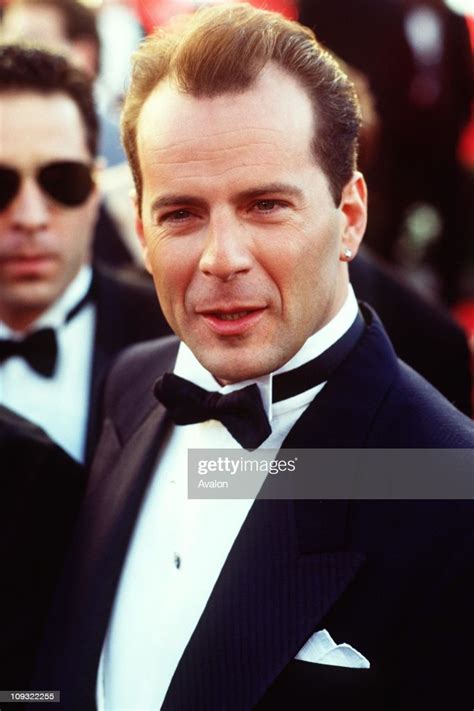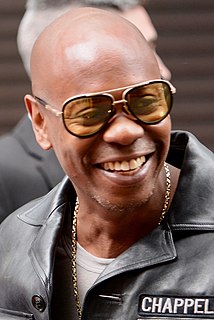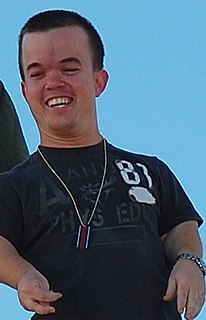A Quote by Hasan Minhaj
To show that a comedian on stage in India talking about sanitation or in South Africa talking about HIV and AIDS awareness, if you follow the joke into their lives, you can see that, like, oh, these things aren't just contrived in joke books. This is real life. I think the best comedians have that bravery and courage to say, Oh, this is what it is.
Related Quotes
Some street jokes are just timeless. There's an old street joke about comedians. The joke is that a beautiful girl comes up to a comedian at the end of the night and says, "I saw your show tonight, and I just loved it. I want to go home with you, and I'll do anything you want." And the comedian says, "Were you at the 7 or the 9?" That's just a perfect joke, because it points out how egomaniacal and obsessive comedians are. Even though I'm not waiting for a groupie, I can completely understand it. It just defines how comedians are driven.
I came upon whatever I'm doing organically. I didn't study anything. I don't have any real aspirations other than to connect with somebody, and to have the conversation be genuine. That's the best that can happen. Even if it only happens for 10 minutes in an episode. But I think what people forget is that you don't have to try to get a comedian to be funny. Comedians are innately funny. That the real challenge of talking to them is to get them talking about real things and then see where they need to be funny. And let them do that on their own volition.
I think one of my favorite pieces I've ever done on the show which was about Hezbollah Israel conflict in 2006 and it was very pointed. It was a beautifully crafted piece of satire and it's a weird thing to say but it had a joke in there about 9/11 and I remember the audience sort of laughing but also kind of not knowing how to respond to that joke and it was just so - and I remember the tension after we did this joke on the air and there was this palpable gasp in the audience, but they were also laughing. And I thought oh, wow, that is something that is not being said in the Zeitgeist.
People try to put ownership on things: 'That's mine, that's my joke.' No such thing. Like if you tripped or stumbled and people go, 'Oh, that's Charlie Chaplin.' You know what I mean? You can't own a joke. You can be the guy that tells it the best, but you can't own a joke. Nowhere can you own a laugh.
Now, I want to explain something to you guys. I don't have an ending joke, because I don't tell jokes. I tell real-life stories and make them funny. So, I'm not like the average comedian. They have an ending joke; they always holler Peace! I'm out of here, and walk off stage. So, basically, when I get through performing on stage, I just walk off.
I spent the past week here in India getting a sense of the reality of HIV and AIDS in people's lives. Fathers and mothers are dying, leaving children with no support. Stigma and discrimination is ruining the family lives. There is an urgent need for education, information, and increased awareness of HIV and AIDS. The response needs to be now. We cannot afford to become fatigued.
When you see a comedian on stage, the best comedians make it feel like a conversation. But it's not. We have very little interest in what an audience has to say during a performance. Being a stand-up comedian, you're an egomaniac to some degree. Everyone wants to hear what you have to say, apparently. That's not how real relationships work.
Often, when you're in some of these writing rooms for... and the most restrictive is network television, right? They say, 'Wow, that's a great joke, but we can't do that. Okay, let's try the second joke. Oh, you can't do that one. But the third joke you can do,' and hopefully it will be great, but it will remind people of what the joke really was.
The personal boundaries, I think for comedians they're a little bit different anyway, but I think people - feel free to do stuff - It's interesting with comedians because when we walk on stage, oftentimes we're talking about ourselves for an hour and we're talking about very intimate details, so after hearing us for an hour, a lot of people feel very comfortable with us because they feel like they know us and they're our friends because we just told them our innermost secrets and details of our lives for an hour. What they forget is we know absolutely nothing about the audience.




































